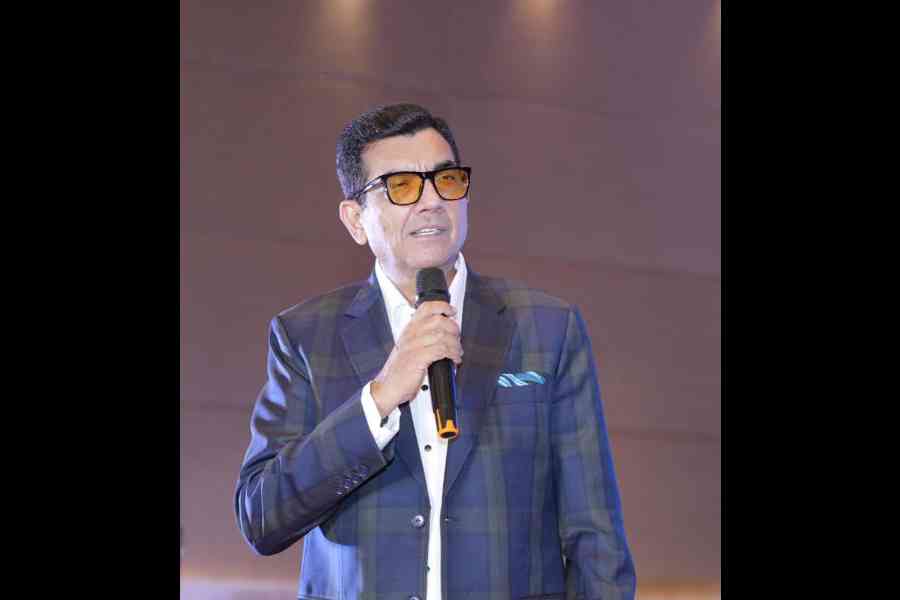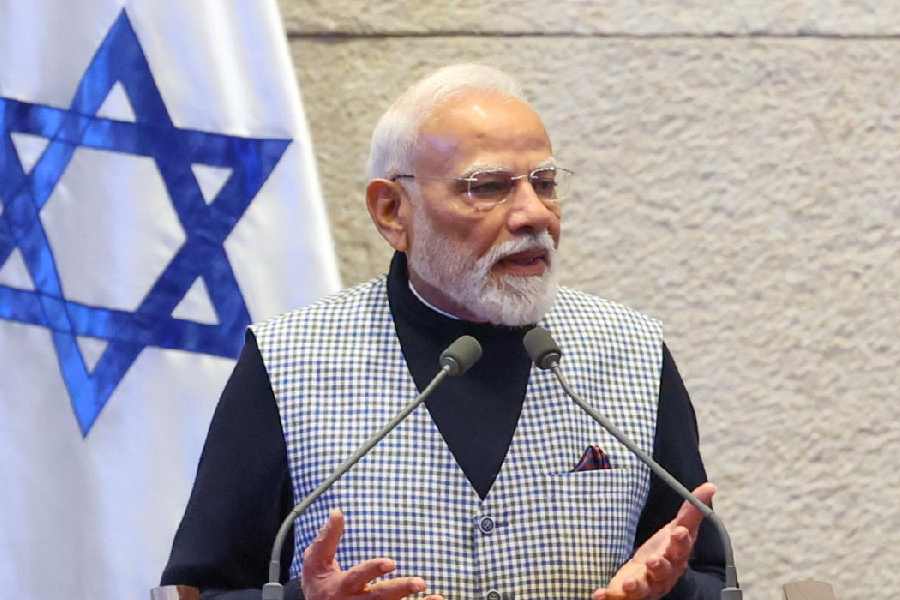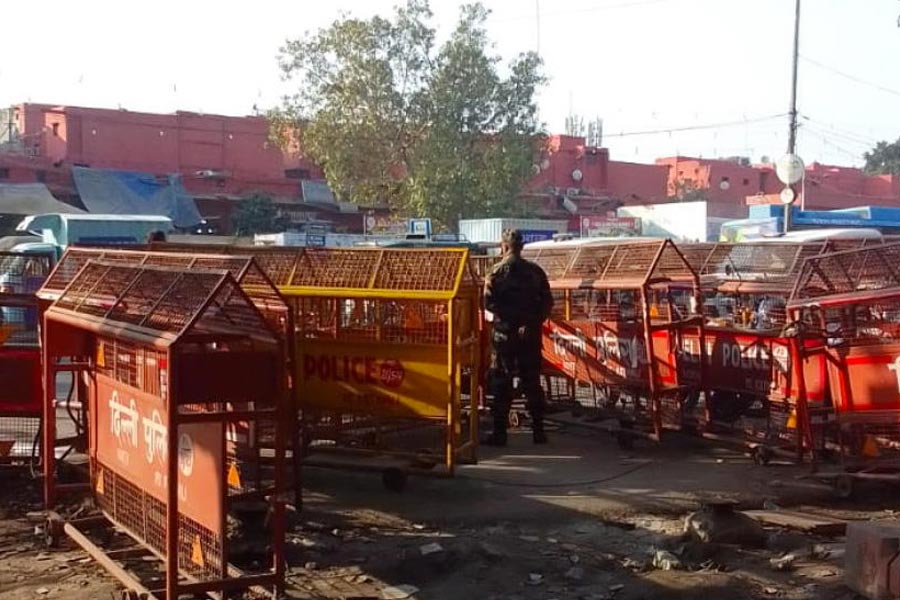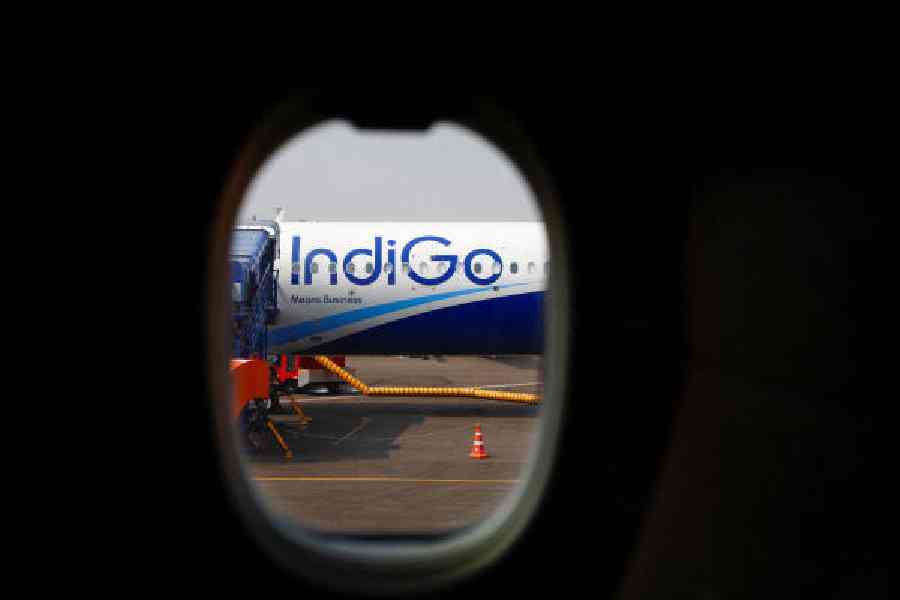Celebrity chef and Padma Shri awardee Sanjeev Kapoor was recently in Calcutta to launch Wonderchef, the premium cookware and kitchen appliance brand he co-owns with entrepreneur Ravi Saxena. The event marked the opening of Wonderchef’s 31st store, and the first in eastern India, at City Centre Salt Lake, on July 25. Later that day, he also unveiled Chai Magic, an automatic tea maker designed specifically for Indian-style chai, at The LaLiT Great Eastern Kolkata. On the sidelines of the whirlwind trip, Kapoor sat down with t2 for a hearty chat about food, flavours, and the philosophy behind the plate. Excerpts:
In today’s fast-paced world, how do you define “good food”? Is it about nostalgia, health, creativity — or a bit of all?
It’s not just about the food itself. Good food begins with fresh, seasonal, and local ingredients. It’s what you do with them that matters — the cooking process can either enhance or diminish nutritional value. The goal is to preserve the essence of the natural ingredient while making it more palatable, appealing, and flavourful.
Good food isn’t judged by a single parameter. It depends on who’s eating it and how it fits into their lifestyle. For instance, if someone is making luchi, we might recommend a mix of maida and atta or even suggest air-frying it. Cooking should be convenient. In today’s busy world, people don’t have the luxury of time in the kitchen. That’s where thoughtful innovations and responsible brands like Wonderchef step in — we prioritise health, then taste, and finally, convenience.
What has been the most memorable meal you’ve ever cooked — either professionally or personally?
There are countless memories, but one that stands out was a meal I prepared during a long and engaging conversation with Prime Minister Narendra Modi. It wasn’t political, just food talk. Food has the power to transcend boundaries, bring people together, and unite nations.
I drew inspiration from across India. I incorporated sweets from Calcutta. We brought nolen gur with us and crafted nolen gur’er sondesh. The food led to conversation, and the conversation became memorable. That’s the magic of food — it creates connections.
How do you strike a balance between preserving the roots of traditional Indian recipes and innovating for a modern palate?
Food is always evolving, and that’s how it should be. Just like humans evolved from apes, cuisine must also adapt. I don’t believe authenticity means doing things the way they were done 50 years ago. Authenticity is about staying true to the present.
Refrigeration, farming, cooking methods — everything has changed. The key is to take the best from the past and present it in a way that’s relevant for today and tomorrow.
Are there any regional Indian cuisines or ingredients you believe are still underrepresented globally but deserve the spotlight?
Absolutely, and Bengal is a great example. Mustard is known around the world, especially in places like Dijon. But the way it’s used in Bengal, especially in fish preparations, is phenomenal. The complexity of kasundi or the synergy of mustard with local produce here is something the world can learn from. We don’t need to look abroad for inspiration, there’s so much treasure within India.
With the rising trend of plant-based diets and mindful eating, how do you see Indian cuisine adapting to global food trends?
We don’t need to adapt — we just need to stay rooted and present ourselves authentically. Let the world come to us.
What does comfort food mean to you, and what’s your go-to meal after a long day?
Honestly? At the end of a long day, I just want to sleep! (Laughs) Comfort food isn’t a dish — it’s a feeling. It’s about ease and familiarity. For me, that’s simple, home-style food. The kind you don’t have to think twice about — just enjoy.
If you could cook for any historical or contemporary figure, who would it be and what would you serve?
Since we’re in Bengal, I’d imagine Rabindranath Tagore inviting Charlie Chaplin over, and I’d love to cook for both of them. Two geniuses from different worlds. I’d prepare something traditional, and flavourful — maybe a bhapa dish, since it retains nutrition and moisture. How about shorshe jhinge (ridge gourd in mustard) steamed and served with Gobindobhog rice? Simple, soulful, and rooted.
What’s one cooking myth or habit you wish every Indian home cook would let go of?
The idea that food should always taste like restaurant fare. Let’s bring focus back to home-style cooking, and even the business of home-style food. There’s immense beauty and value in simplicity.
You’ve popularised Indian cuisine globally. What has that journey been like?
It’s been nothing short of a dream. I wake up every day and say, “My God, what a fulfilling journey.” Instead of focusing on the struggles, sleepless nights, and tough phases, I celebrate the joy. It’s about how many lives you’ve touched with happiness. That’s what matters.
What’s one turning point in your career that changed everything?
Choosing this career in the first place. At the time, it wasn’t considered “cool” to be a chef. But I had the courage to pursue it and that changed everything.
You wear many hats — chef, entrepreneur, TV personality, author. How do you manage such a diverse portfolio?
Just look at a mother at home. She’s a caregiver, cook, cleaner, planner, problem-solver — all in one, and without any applause or payment. I haven’t even come close to that level of balance and grace. The average homemaker in India is the real multi-tasker — I simply do my best.
What does a typical day in the life of Sanjeev Kapoor look like now?
It often starts with an early morning airport dash — managing WhatsApp messages, coordinating with teams across the world, catching flights, catching up on sleep, strategising for my brand, attending press events.
Choosing Calcutta for the Wonderchef launch was intentional — this city understands culture, food, and taste. Years ago, someone told me Calcutta is one of the best test markets for FMCG products. The city is culturally rich and deeply evolved, people here value nuance and quality. It’s the perfect place to launch something that needs sensitivity and appreciation.
Do you still enjoy cooking at home, and what do you cook when no one’s watching?
I’ve always cooked as if no one’s watching — that’s when I enjoy it the most. Even when I’m on TV, it’s the same. If I don’t enjoy cooking, I simply won’t do it. I’m an intuitive cook — I let ingredients speak to me.
For instance, while walking through the rice section at Metro Cash and Carry on EM Bypass (where he was for a dealer meet), I saw some local varieties and thought, my younger daughter (Kriti Kapoor) is here from London, maybe I’ll cook something with local rice on Sunday. Perhaps pick up some gondhoraj lebu. I let the mood and moment guide me. I’ve even changed dishes mid-way during a live show, that’s creativity.
What’s one dish your family or friends always ask you to make?
Mutton biryani — without a doubt. It’s a crowd favourite and always in demand.











